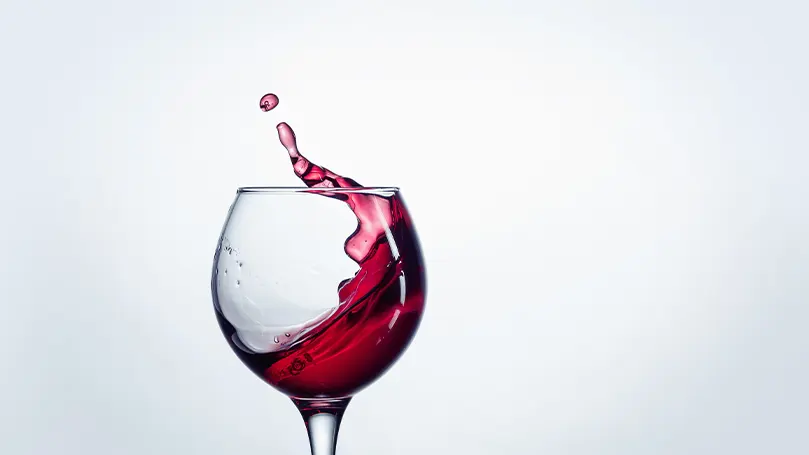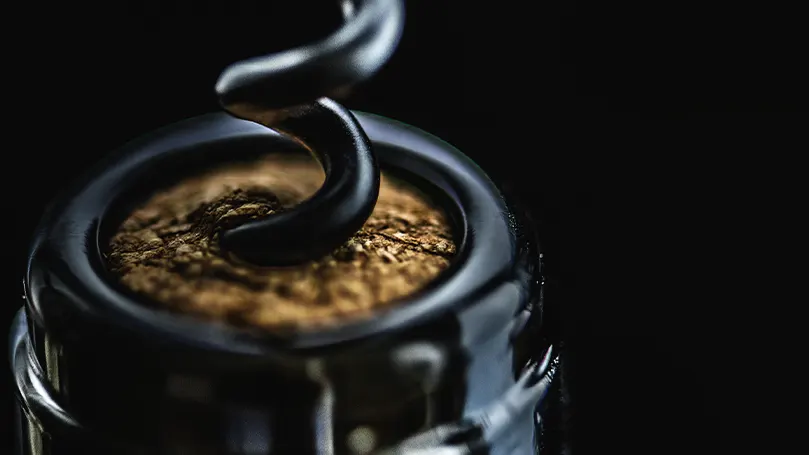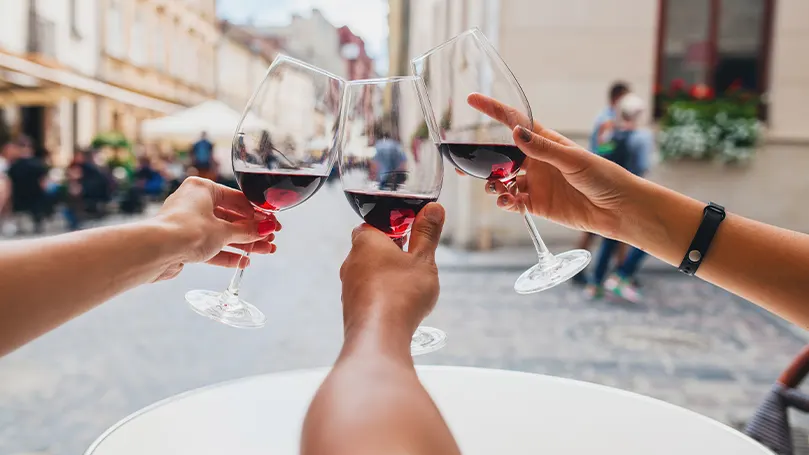What is National Drink Wine Day?
Wine is fermented grape juice and has always been considered the drink of the Gods. Archaeological finds show that man-made wine in the Neolithic by storing grapes in the stone hollows of the cave and fermentation would turn it into a drink. The oldest traces of wine were found on parts of 8,000-year-old clay jars, which archaeologists found at two archaeological sites near Tbilisi, the capital of Georgia.
Wine, which was attributed to healing and divine powers, has always been a part of religious rituals but also an integral part of cooking. Since it has always been expensive, wine was only available to the highest class of society for a long time. In ancient Greece, the god Dionysus and, in Roman mythology, the god Bacchus were considered the gods of wine. Wine production came to Europe from Asia; since then, it has remained so loved and absorbed that it has its special day. National Wine Day is held every year on February 18. Celebrating this day promotes the benefits of wine consumption in the context of health and taste.

How to celebrate National Drink Wine Day?
A wine-tasting party is a creative way to celebrate an event. It's an opportunity to gather your friends who enjoy the divine drink as much as you do. Experiment together with new or unusual varieties. For example, have everyone bring a different wine and introduce it to the others. Remember to include food, such as certain cheeses and nuts. There are many versions of wine tasting that you may want to host, so explore the available options. If you don't like this idea, go to a local wine bar or explore wineries with friends.
Go to a wine bar
Why not spend your free hours in the pleasant atmosphere of a wine bar? Explore the available locations, and preferably go to a newly opened location. Since such establishments differ in quality and variety of wines, read more reviews before booking a place, especially if you want a new oenological experience.
Try a new wine
Whether you're heading to a local wine bar or a remote wine region, try a new wine. You don't have to always go with the well-known type of white wine or cabernet sauvignon. Remember to take a photo and post it on social media with the National Drink Wine Day hashtag. Expect that your tastes will differ from other people's, but be open to recommendations. Wine tasting should be fun. Try to get out of your comfort zone because you can unlock a new level of pleasure with an unknown aroma.
Travel to wine-producing areas
The main motive of the trip is wine tasting and familiarization with the process of wine production, packaging, and storage. However, the reason can also be National Wine Drink Day. If you enjoy travel and wine, you will undoubtedly have a great time in the natural environment. Such trips are educational and an opportunity to spend quality time together with dear people. You can also try different gastronomic specialties, as well as attend wine festivals and exhibitions. Choose a region you've never visited and indulge in the wine roads.

Does wine make you sleepy?
Why does wine make you sleepy? The answer is in the skin of the grape or precisely melatonin present in it. That's why wine makes you sleepy. Grape skins have a compound called melatonin. It is the same hormone found and secreted from our pineal gland, which helps with the sleep-wake cycle including reaching deep sleep.
Fermentation is key in the amount of melatonin produced, with a direct and proportional relationship observed. Wine, both white wines and black ones, like cabernet franc grape, does not need more than 20 minutes to enter our bloodstream after consumption. It then approaches GABA-A receptors and causes the slowing down of neuronal fibers. In this way, brain activity is reduced, creating a calming effect. National Drink Wine Day is an excellent opportunity to relax with a glass of your favorite wine and reach the rapid eye movement (REM) phase faster.

Benefits of drinking wine at night
Drink red wine to reduce the risks of some chronic diseases and help yourself fall asleep faster and easier. The best way is to use it as a regular supplement to the Mediterranean diet, a popular way of eating that has confirmed effects on better health and longer life. Everyone who enjoys an occasional glass of wine has a lower risk of liver disease, type II diabetes, certain types of cancer, heart attack, and stroke. In addition, drinking wine lowers cholesterol, helps us relax, makes our minds sharper, and combines with the proper meal to enhance the flavors of spices, fruits, and sauces. From health benefits to fun facts, learn everything you need to know about the beloved alcoholic beverage in honor of National Drink Wine Day.
Helps you relax (mental health improvement)
Bad day at work, bad news, quarrel with a close person, tiredness, or lack of energy. All this affects our mood and spoils our day, week, or month. A glass of wine after a busy day can help us. A little wine heals the spirit but also the body. Numerous studies have been conducted on the impact of drinking wine on health. They all showed how good wine in moderate quantities has a positive effect on the health of adults. Different red wines relax your brain and spinal cord, as well as the rest of the CNS.
Weight loss
I drink wine – said Adele, and she surprised us with an incredible transformation. Coincidence? No, there is something in wine that can help you too. It can help you lose weight because it contains Reservatol. This type of polyphenol strengthens the heart muscle and gives strength to other organs, which experts compare to an hour of physical activity.
Technically, you are taking pure fruit into your body. Together with other polyphenols, they strengthen the genes that increase the oxidation of dietary fats, so the body does not become preoccupied with them. Lipids are burned, and the body remains balanced. They prevent obesity and metabolic disorders.
Cardiovascular health
Due to its antioxidant, anti-inflammatory and lipid-regulating effects, red wine is included in the group of desirable foods in prescribed quantities. Made from crushed and muddled dark grapes, it is a rich source of resveratrol – a natural antioxidant found in the skin of grapes. Antioxidants, as known, reduce oxidative stress in the body, which has proven links to many diseases, including cancer and heart disease.
There is evidence that red wine or, more precisely, red wine polyphenols raise the protective HDL fraction of cholesterol while preventing the rise of the LDL fraction and its oxidation, which causes the formation of plaques. The content of polyphenols in wine depends on the grape variety and the climatic conditions in which it is grown, but it also depends on the production method.
Good for gut health
Our stomach contains billions of bacteria and other microorganisms that help keep the gut healthy. Polyphenols, like resveratrol in the skin of red grapes, are micronutrients that are believed to be beneficial and fuel the microbes that live in our guts. Polyphenols in red wine and grapes can improve gut microbiota, contributing to a healthier gut, and compounds from red wine can act as prebiotics, which promotes the function of healthy gut bacteria. To establish a delicate balance in the stomach, increase the diversity of intestinal flora. One way is to drink an occasional glass of red wine.
Beneficial for skin
In addition to enriching the taste of food and creating a good mood, wine also positively affects the appearance of the skin. This drink contains vitamins A, B1, B2, B6, and C. They protect the body from free radicals, and exposure to free radicals accelerates the aging process and makes us more susceptible to various diseases. It has antibacterial, antimutagenic, and anti-inflammatory effects. In this way, they encourage the tightening of the skin and the cleaning of spots. It also improves circulation, and drinking it regularly makes the skin healthier and more resistant to sun damage.

Side effects of drinking wine every night
In an ideal world, we could drink glasses of our favorite wine daily while sober and healthy. Unfortunately, it is impossible to avoid the consequences of too frequent alcohol consumption. In addition to the possibility of developing wine addiction, there are other health problems.
They are divided into short-term effects and long-term effects. It all depends on how often you drink, your weight, and your alcohol tolerance. The first group includes drowsiness, impaired judgment, impaired movement, and speech. Over time, there is a harmful effect on blood pressure, memory, and skin condition. Long-term effects mean high blood pressure, memory loss, liver damage, sleep disorders and increased cancer risk.
Sleep disruption
Science has confirmed the positive impact of wine, but there is another side to the coin. Let's start with the assumption that alcohol is not only related to sleep. For example, heavy drinking leads to the inactivation of GABA-A receptors. After severe intoxication, frequent awakenings during the night or nightmares in rare cases are possible.
During this process, very high production of epinephrine takes place. It is a compound that helps organisms to “fight or flight”. So the consequence is anger or cowardice. Fortunately, wine differs from other alcoholic drinks with higher alcohol concentrations because it is not associated with aggressive behavior. However, large amounts can cause depression in the nervous system, resulting in frequent lethargy and disrupted sleep.
Harmful interaction with medications
Drug therapy is a part of everyday life for some people. Unfortunately, they have to be much more careful than others when choosing their meals and drinks. Otherwise, the choices can have very harmful effects on their organism. To be safe, consult your doctor before consuming wine since the impact of the drug changes. The field of drug interactions is very complex, which means that not all interactions are harmful. For example, you should not take alcohol with an antibiotic because the total effectiveness of the drug is lost. Nausea and vomiting, headaches, and drowsiness can also occur.
Increases a person's lifetime cancer risk
More alcohol creates toxins in the body, damages body tissues, and creates oxidation, which means that the potentially harmful effects of alcohol could outweigh any benefits. Experts link heavy alcohol use to several cancers, including mouth, throat, liver, breast, and colon cancer. Moderate alcohol intake, especially red wine, is associated with a lower rate of liver fibrosis in people with nonalcoholic fatty liver disease.
However, the effect of red wine on liver health is quite complicated. Although it provides antioxidants and reduces oxidative stress, consumption can increase uric acid and triglycerides, which damage the liver. Of course, people with active liver disease should avoid alcohol.
Hangover
Headache, feeling exhausted and upset stomach. Everyone has experienced the symptoms of a hangover at some point. You should not experience them again if you drink the recommended dose of wine. Otherwise, prepare for a rough day. So, the first cause of a hangover is the amount of alcohol, and the second is the type of wine. A congener is a substance used in production that gives color and flavor to the wine. If used in large quantities, it has a toxic effect on our bodies. The by-products of the fermentation process linger in the body, making us hungover the morning after.
Addiction
For most people, enjoying a glass or two of red wine each day can be part of a hedonistic ritual and a healthier lifestyle. Regardless of the many possible health benefits, it is essential to reiterate that consuming large amounts of alcohol certainly does more harm than good. Drinking wine is usually not a cause for concern, but its abuse is. Especially if there are symptoms that indicate problematic behavior. If a person drinks to feel happy, forget worries, or gain self-confidence, this indicates a problem with alcohol.

Conclusion
Consuming alcohol may affect sleep quality and sleep patterns. However, wine is different. Whether red or white wine, a fine wine drunk with a favorite activity or company pleases everyone. That's why it's a favorite habit for many, not just during National Drink Wine Day. As long as it is enjoyed in moderation, it helps to relax the mind and positively affects the heart and blood vessels. It also has a beneficial effect on mental health that is directly related to sleep habits. Drink responsibly and everything will be fine.












There are no comments yet
"*" indicates required fields